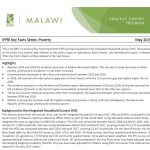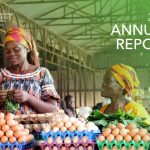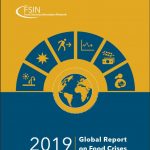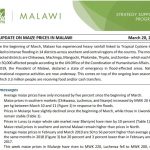IFPRI Malawi is pleased to announce the publication of a fifth Key Facts Sheet highlighting recent trends in poverty in Malawi. This follows Key Facts sheets on agriculture, food and nutrition security, social safety nets, and inequality. The series is being produced using the Integrated Household Surveys (IHS). The series synthesizes nationally representative household survey […]
2018 IFPRI Annual Report
IFPRI’s 2018 Annual Report shares highlights of our work, which together with partners has helped to develop and tailor knowledge to local contexts, build human and institutional capacity, and support development strategies in many countries around the world. Research findings and policy developments related to fostering climate resilience, agricultural transformation, healthy diets, inclusive and efficient […]
Policy Note 34: Malawi’s Challenging Employment Landscape: Any Signs of Structural Transformation? Synopsis
This Policy Note offers a synopsis of a study, detailed in Working Paper 27, which examined Malawi’s employment landscape, focusing on the challenges facing its rapidly growing youth. Using three rounds of the Integrated Household Survey (IHS) conducted between 2004 and 2016, the study finds little evidence of structural transformation in Malawi’s economy or of […]
2019 Global Report on Food Crises
This story is cross-posted from the IFPRI website and was originally written by Sara Gustafson. The world’s humanitarian assistance and spending needs have more than doubled over the past decade, growing by around 127 percent. Around 40 percent of that went to the food and agriculture sectors. Conflict and climate shocks have led to an […]
Update on Maize Prices in Malawi
Since the beginning of March, Malawi has experienced heavy rainfall linked to Tropical Cyclone Idai, which has led to intense flooding in 14 districts across southern and central regions of the country. The most severely impacted districts are Chikwawa, Machinga, Mangochi, Phalombe, Thyolo, and Zomba─ which each have more than 50,000 affected people according to […]
- « Previous Page
- 1
- …
- 48
- 49
- 50
- 51
- 52
- …
- 69
- Next Page »





